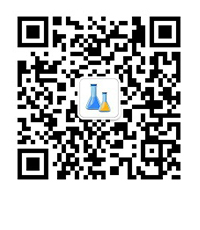Search Product
Structure Search
Search
Advantage Products
Location: Industrial Info
Big data analysis proves that the effect of aspirin on breast cancer again
2017-05-09
来源:转载自第三方
9 May 2017
Recently, US researchers found that daily use of low doses of aspirin (acetylsalicylic acid) can reduce the risk of breast cancer, the relevant study entitled "Regular and low-dose aspirin, other non-steroidal anti-inflammatory medications and prospective risk of the article" was published in the international journal "Breast Cancer Research".

Aspirin (Acetylsalicylic acid) is a common nonsteroidal anti-inflammatory drug that can be used to relieve pain and bring down fever. After a hundred years, the researchers have found that it can also be used in a variety of neurological disorders, immunotherapy, senile cataract, preeclampsia, female infertility and habitual abortion, daily use of low doses of aspirin can play a role in the prevention of cardiovascular disease and colorectal cancer. But the scientists are clearly not satisfied with this, they are still tirelessly study its role and mechanism in every fields.
This study was based on the analysis of large data, the researchers analyzed questionnaires from 57,164 women a decade ago (2005-2006). The contents of the questionnaire include family cancer history, height, weight, diet, exercise, etc., as well as the dose and frequency for the use of aspirin and other non-steroidal anti-inflammatory drugs. And then they obtain the information of these 57,164 women suffering from invasive breast cancer from the cancer registration system, of which 1457 were sick. Analysis: ibuprofen, acetaminophen and other non-steroidal anti-inflammatory drugs have no effect on the risk of breast cancer, high-dose aspirin has no effect on the risk of breast cancer, only low-dose aspirin will produce this effect. Women who took more than 3 times a week with low-dose aspirin had a 16% lower risk of developing breast cancer.
What is the reason for this? According to the author’s speculation, strong aromatase inhibitors can be used to treat breast cancer, and aspirin is a weaker aromatase inhibitor, so it can reduce the chance of breast cancer attack. At the same time, aspirin can reduce inflammation, which may be often taking aspirin to reduce the risk of breast cancer, that can be another mechanism. On May 5, a paper entitled "Platelets subvert T cell immunity against cancer via GARP-TGFβ axis" was published on the journal Science Immunology, and researchers from the South Carolina Medical University found that, when combined with common antiplatelet drugs such as aspirin, T cell therapy can be more successful in improving anti-cancer immunity. This may also be a possible cause of reducing the risk of breast cancer.
The next step, researchers will further explore the full value of low-dose aspirin in the prevention and treatment of breast cancer. With the deepening of research, more and more efficacy of aspirin may be found. Although the current studies have shown support for long-term use of low-dose aspirin, but patients should make the decision according to personal circumstances and carefully assess the benefits and the risk of bleeding, it is best to communicate with the doctor.
Related Links: American scholars confirm that daily low-dose aspirin can lower cancer death risk
Acetylsalicylic acid
Acetylsalicylic acid
Edited by the Editorial Office of Suzhou Yacoo Science Co., Ltd.
如果涉及转载授权,请联系我们。












